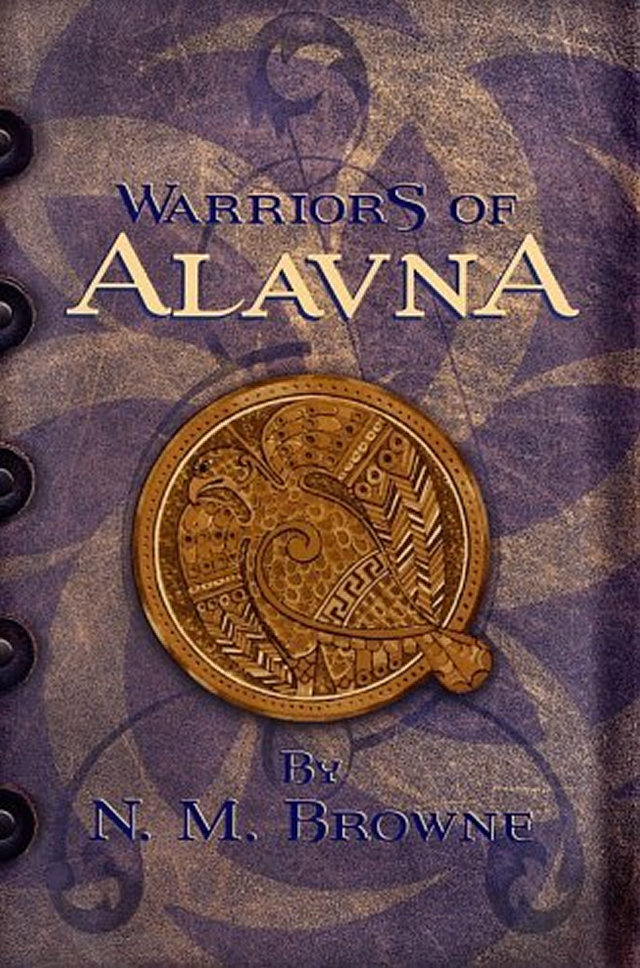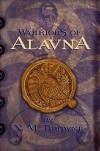Michelle: I’m afraid most of my reviews are reaction.
Kate: I’m sure most of mine are, but I’m not really sure what separates ‘review’ from ‘reaction.’ I mean, at its definition a review has to contain some kind of an opinion, and no matter what the critics may fool themselves into thinking, their opinion is not really any more valid than some dude off the street who also read the book.
Kate: I get that with non-fiction, it’s good to have a subject matter expert review the book (though I’m inclined to think that should have been done prior to publication!). For fiction, though?
Michelle: This has come up pretty recently in the manga community wherein one blogger criticizes others for essentially writing ‘buy or not to buy’ reviews rather than delving critically into a work and its themes. Personally, I think both approaches are valid, but not everyone agrees with my “relativism.”
Julie: I agree with you. Not all reviews are meant for all audiences.
Michelle: Both cases would still contain “reaction,” but one would arguably go beyond a simple “I liked it” to some sort of deeper analysis. Personally, wholly academic writing on fiction is not my cup of tea, but I try to at least be more specific than just “It was good. I laughed, I cried, it was better than Cats.”
Julie: Traditionally it was probably reviews aimed at librarians and bookbuyers on one side and reviews for fellow literary critics/English majors on the other. And very few reviewers thought of writing them for the general public. Or if they did, they were so mired in the system that had molded them to write one of the other two ways.
Julie: But it’s not like I’ve read a lot of reviews historically. I only really got into reading them once they hit online.
Julie: I think the word ‘reaction’ versus ‘review’ comes from English and other subject classes in school, and so I don’t like it.
Michelle: You may be right about the origins of the “buy/don’t buy” approach. That makes sense to me.
Julie: Where a ‘reaction paper’ is the teacher wanting to know your opinion and thoughts. And I guess a review, if a student was ever supposed to write one, would be more formal and follow a more specific outline and plan. ‘You must include this, this and this. And don’t do this.’
Kate: That’s an interesting article, Michelle. For me, though, that a “review” and “literary criticism” are really completely different animals. A review, to me, is something which you can examine prior to reading the item to yes, let you decide read/not read or buy/not buy. Literary criticism tends to mean very little to a person who hasn’t actually read the story, no matter how well it’s done.
Julie: I was going to say how /I/ read reviews, but I actually read them at least 4 different ways. So I can’t even peg myself as one specific audience.
Julie: 1) I’m on the fence about buying it to read for myself and the summary hasn’t given me enough info to decide. 2) I’m trying to decide to buy it for someone else, whether for the library or for a friend/relative. 3) I’ve already read the book and I want to know what other people or what a specific person thinks about it. 4) I’m ready to delve into a deep analysis of it.
Kate: Hmm. Well, I definitely read reviews for reasons 1-3. But I don’t think I would ever look for something specifically billed as a /review/ for item 4.
Julie: So, for 1) I want someone’s opinion. I want it short. I don’t want too many spoilers. 2) I want a little more info and a quality assessment. 3) I want opinions and comments and witty commentary. 4) Well, it has to be a slant that interests me or a book that really interests me, or those things can be dull.
Julie: I’ve seen essay collections by authors or by theme and they’ll put ‘reviews’ in there that are definitely more literary criticism.
Kate: Oh, definitely. Essay collections about a particular topic, especially if it’s about a book, tend to veer sharply toward literary criticism. I read one collection about Pride and Prejudice — it was about 25% fanfic, 25% memoir, and 50% critical analysis.
Kate: But analysing the themes and specific symbolism in the book is definitely going to be incredibly spoiler laden territory. Which is why I’m not sure it belongs anywhere near an actual review.
Julie: Well, so we should get on the academics for saying ‘review’ when it’s not. Just as critics are getting on the general public for saying ‘review’ when they think it’s not.
Michelle: I think the author of that article would agree that reviews and criticism are separate, but his gripe was that the manga-blogging community was not offering enough of the latter. A follow-up article pointed out that many people are getting the story in pieces and from different sources—rather than art comics, which tend to be single-volume releases—and so you never quite know where your reader is in the story, so spoilers are often avoided.
Julie: This dictionary and its definitions are all over the place. They support all those views.
Julie: http://www.thefreedictionary.com/review
Michelle: I include a small amount of spoilers in my reviews, but try to limit plot synopsis to two paragraphs and then, yes, devote the rest primarily to reaction.
Julie: It definitely is harder to avoid spoilers when you’re reviewing later books in a series. You don’t want someone spoiled for a major plot point in the first book because they stumbled onto your review.
Julie: But sometimes it’s really hard to avoid. If soandso’s death or soandso’s child born at the end of the last book is a major point in book 2..
Michelle: Yeah, about all you can do (from a blogger’s perspective) is issue warnings and hide the spoilers behind a cut.
Kate: I think if the manga community really -wanted- more analysis, it would be there, you know? It’s not like people aren’t capable of producing it. But the fact is, there was a real gap in the review market and that’s what you all are filling.
Julie: Along with reading reviews 4 or more different ways, I also write them differently. I wrote one way for epinions, because they had a way they wanted it done and if you didn’t do it that way, your review got buried and you got less or no money.
Julie: When I started writing them for goodreads, I went for short and sweet and only what I really felt like saying. Sometimes I’ll forget to say what the book is about.
Julie: For TT, I know I need to be longer and have more to say. And I still tend to be a little light on saying what the book is about up front.
Michelle: I agree, Kate. Still, it made me feel kind of insecure for a time. I started writing simply for my own enjoyment, and it’s definitely just a hobby for me, but I still want to feel as though I’m useful and distinct.
Kate has been trying to be better about explaining why I think something is good or something is bad. It’s usually a lot easier to explain why something is bad.
Michelle: Yeah, I look back on my earliest reviews now, which are really really short, and sort of cringe.
Kate: For manga, and for longer series with relatively short books, it’s also hard to analyse until the series is -done-. If it ever really ends. But by the time it’s done if you wanted to do that, you’d have to read it all again.
Julie: It’s been suggested to me that I try to sell my reviews. And I just resist that because I feel like I’ll be forced more back into the epinions style. And like it’ll be more work and more boring than just writing what I want for goodreads. Or writing for TT where I know at least you guys will read it and I’ll get to read yours! So the more I say, the more you can agree or disagree with me. :)
Kate: Sell them to where?
Julie: There’s a few markets that take reviews. Though IROSF closed. :(
Julie: Figuring out which book to review at first would also be hard. You’d have to do something no one else was likely to already have done because they got an ARC and you didn’t.
Julie: Strange Horizons is one of them.
Kate: Anyway, I do think the kind of reviews you find in the NY Times are definitely not even close to the reviews most buyers actually look at, in PW, Library Journal, Booklist, etc.
Michelle: I don’t think I’d sell a review. As I said before, it’s a hobby to me and I don’t want it to start feeling like a job! I don’t want to appear beholden to anyone, either. Occasionally, manga fans raise a fuss about the objectivity of bloggers who receive review copies, but I truly doubt anyone tempers their opinion because a book was a review copy.
Julie: Even looking at SH’s guidelines, they want reviews twice the size of my Alavna review.
Kate: They do seem to want very long reviews. The limit in LJ is 150-200 words, iirc. But those are very specifically plot synopsis, some context, and a buy or not buy recommendation.
Julie: You’d rarely be selling all rights to your review! SH you’re only selling “We require exclusive electronic rights for two months. After that period, you are free to republish the review elsewhere. We hope (but do not require) that you’ll allow us to post the review in our archives indefinitely after it’s rotated off the front page. You have the right to remove your review from the archives at any time.”
Julie: Oh, Library Journal. I thought you meant LIvejournal and got confused. :)
Julie: In /general/ I think those manga fans that object are probably new to the world of reading reviews and quite possibly young as well. I don’t hear that objection coming from the sf/f crowd. ARCs are quite often crappily put together and in need of revision, which is why they’re not the final product. You’ve earned the chance to read it early. You haven’t really been given a gift otherwise.
Julie: And if you look at Scalzi’s blog Whatever, or anyone else who posts pictures of all the ARCS and free actual books they’ve gotten.. you can kind of see they’re not being influenced! ‘Oh, this publisher gave me a free book. Just like the other 10 publishers did.’
Kate has a PW sitting on my desk, so let’s see. Obviously there is controversy here, because the point of Publisher’s Weekly reviews are to sell books. So you rarely get anything negative. But even so, it accomplishes the object which is to give people enough information about the book, the author and the style of writing for them to make a decision: look into the book further or not bother.
Michelle: Yeah, true. Although with manga, generally the copy the reviewer gets is same as what goes into the store. I only have a few actual ARCs.
Julie: Unless you’re BFFs with the mangaka, I think a reviewer’s review is going to be as unbiased as any person’s could ever be. Which is not very. :)
Michelle: Most of my reviews, to which I assign grades, are in the B range, which is typically “entertaining but flawed in some way.” I give few A’s.
Julie: Well, and I guess as a poor college student and poor reportedly-working-person I would’ve been jealous of all those free manga, which are like 10$ apiece and I could never afford and can’t afford a lot of now. But then I’d just be jealous. I shouldn’t turn that jealousy into distrust of your opinion.
Julie: Manga readers don’t know how good they have it these days!!!!! They can walk into a library and read them fREE!!!!! They can read them IN ENGLISH!!!11!!
Julie: Get off my lawn!
Kate: I do suspect much of the griping is more sour grapes than really thinking someone’s been influenced.
Michelle: That’s interesting, Kate. I hadn’t realized that so few of the PW reviews would be negative. Once, at Manga Recon, the site owner suggested that we might focus on things we liked, but I replied that it was our responsibility to also warn readers away from duds.
Julie: I think it’s a generational thing. Which isn’t entirely age, or even mostly age. Manga in abundance in English is a new thing. But not so new that some manga readers have felt it’s always been that way. And not so /old/ that it’s an established thing that there are people out there reviewing it all over the place.
Michelle: When it’s obvious from the start that a given book is not my thing, like if it has an impossibly buxom girl on the cover and about a dozen panty flashes in the opening chapter, I admit that I generally don’t proceed to read and review it. But if it’s something that genuinely looks good but then isn’t, then I definitely want to write about that.
Kate: It’s definitely much rarer to find a bad review in PW than somewhere else, as far as I can tell. It’s not impossible, of course. But they usually do try to put a positive spin on things.
Julie: With the publications like PW and LJ, it’s almost more that you’ve gotten a review of your book in there than if they liked it or not. Though obviously as a writer you’d want a good one. But even a bad one will sell more books than if you weren’t in there at all.
Kate: Yes, I’m not sure what the logic is behind avoiding reviewing something that’s bad. Aside from the pain of actually having to read it, it’s far more fun to review something lousy.
Michelle: The pain of reading it is what often gets me. “Life is so short,” I think. “And I could be reading something else!” I recently reviewed K-ON!, which I genuinely thought I might like, but was disappointed.
Julie: I agree to that. As long as you don’t take it to the extreme and become a romance reviewer for a site or a publication when you wouldn’t read a romance ‘on your own time’. I think you should be reviewing something you have a chance of liking because it appeals to you before you’ve even started.
Julie: What I have trouble with is people who review a book without finishing it. And yet I’m frequently tempted to write something somewhere about why I gave up.
Kate: Oh, I definitely agree with that. I wouldn’t deliberately seek out books I couldn’t possibly like just so I could rip them apart.
Kate: I don’t think there’s anything wrong with writing why you gave up, as long as you’re clear you didn’t finish.
Julie: Is it fair to give it a star rating on Amazon or Goodreads though?
Julie: I’m not sure if Amazon forces you to rate it.
Kate: They do.
Julie: Then if you give it 1 star and say ‘The first two chapters suck, so I gave up.’ Is that really fair to be weighted against the person who gave it 4-5 stars and actually finished it?
Kate: Is it fair to rate something you didn’t finish? I guess it depends. If you didn’t finish because you felt it was awful, then I think it’s quite fair.
Julie: I know on Epinions, when I Was active there, if you even hinted you hadn’t finished, most people would vote to hide your review, so no one not registered on the site would ever see it. And your rating wouldn’t count.
Michelle: It is exceedingly rare for me to give up on a book because I do feel like I need to finish it before I write a review. I recently gave up on a Barbara Michaels book, Patriot Dreams, because it was ungodly dull. But I didn’t feel like I’d read enough to really warrant writing about it.
Kate: If you can’t quantify /why/ you had to stop, I’m not sure I would rate it. I can’t entirely explain why I can’t read Lord of the Rings. Oh, I can point to some issues — no good female characters, too much poetry — but those aren’t really the main problems. There’s something more fundamental I just can’t identify.
Kate: So I wouldn’t try to review it or rate it.
Julie: It’s boring as heck? :)
Julie: WE could do a year-long project. Or two years-long. We each read one chapter a month of one of Tolkein’s books and tell why we hate it.
Kate: But there are other books that move at about the same pace with similar characters that I can read and love! So it’s some ineffable quality that it shares with The Song of Ice and Fire and with The Wheel of Time.
Julie: Hrm. The words that come to mind of those three are ‘long, hard boring slogs’
Julie: Which I guess it not a helpful description.
Kate: Exactly. But why are they? The Belgariad books by Eddings are of similar length and not dissimilar in plot. But I don’t find them to be long or sloggish.
Julie: The characters stand out for me there. Maybe the Eddings dialogue is better.
Kate: Why do I adore the Vorkosigan series and yet never got more than 3 chapters in to Honor Harrington?
Julie: I finished one Honor Harrington. It was…. characters and dialogue, I just bet you.
Kate: Maybe it is.
Julie: Or two different ways of looking at political plots? The female way which is about the people and the male way which is about tactics and a more.. impersonal view? Emotionally detached view? Hrm.
Kate: That’s possible. Eddings eventually did acknowledge that his wife was actually his co-author.
Michelle: I don’t hate Tolkein! And I even read the first nine or so in The Wheel of Time. In the latter, I think it was probably more the worldbuilding than the characters that interested me, but when all of the plot threads seemed to be fraying I gave up. Someday I will probably go back and see how it ends.
Kate: That’s why I’m always so baffled, Michelle. People whose tastes really coincide with me very well really like these authors.
Michelle: I do agree that likable characters can certainly elevate a book beyond its peers. That’s part of what makes a lot of early Buffy episodes fun to watch even when the demonic plot of the week is decidedly lame.
Kate: Then there are authors I won’t even try because the reviews of their work have those secret code words that turn me off.
Julie: Undercovers was a good show for the characters and dialogue. Not the plots.
Julie: Yea.. let me look up those three series you just mentioned and see if I can find some code words.
Michelle: I definitely have code words that spark my interest but I’m not sure about turn-offs. Maybe words like “passionate,” actually. Passion is a turn-off! :)
Kate: Anything that describes the writing as ‘lush prose’ or ‘lyrical prose’ is a huge red light for me. IIt screams: “WARNING: Too many lengthy descriptions and long winding sentences that try to be fancy! Writer cannot write a plain sentence to save their life!”
Julie: A ‘gritty’ world. ‘beautifully constructed prose’
Kate: There’s plenty of people who enjoy that sort of thing, so I shall leave it to them.
Julie: I’m a little leery of ‘richly detailed fantasy’
Julie: Here’s 2 short review excerpts on Amazon of book 1 of WoT that mention Tolkien. So.. yea.. when one book is equated with another author I don’t like.. well.. DOOM.
Julie: And yet if you equate it to Rowling, it’s not going to endear me to the book/series either. Because I think you’re just name-tossing.
Julie: ‘This is a great book that reads like a cross between Tolkien and J. K. Rowling’. Yea.. why, cuz it has wizards? in the UK? And a ring or something?
Kate: Hahaha. You know what cracked me up was that apparently Robert Jordan liked Cryoburn. Um. Yes. Not so much, publisher, wtf.
Julie snorks.
Kate: I hate to pick on Cat Valente, ’cause I think she is extremely talented. But her book-writing just does not do it for me. It’s really odd, because I adore her blog. She always has interesting things to say and opinions about subjects that I want to hear. But her books — I just can’t read. Here’s a sample from her latest: “Such dust I have unearthed by Your direction, Lord, such emerald dust and ruby sand that I fear one day I shall wake and my vision will be clouded in green and scarlet, and I shall never more see the world but through that veil of jewels.”
Julie: Now I’ve got dust in my eye.
Julie: I have tried reading 2 of her books and failed pretty quickly, yes. Which on the face of it makes no sense because she writes about gender and Japan and.. other awesome things. I actually gave up on a book while one of the characters was riding the subway in Tokyo!
Michelle: That quote would assuredly turn me off, too, Kate. One person’s poetic is another’s pretentious.
Julie: It’s cool, for me, when I’ve been reading something, and the rhythm gets into my head. But it’s about the rhythm. It’s not about the words I don’t understand or the sentence structure I can’t wrap my head around. And OSC even has a rhythm and I identified it at a young age as being plainly written. I liked it and praised it for that. Yet there is a rhythm there.
Julie: You know what’s a turnoff, and your quote is a prime example.. an abundance of colors.
Michelle: I actually just don’t even know what’s going on in that sentence. I like to be able to picture things while I read—perhaps this is why I read so slowly?—but I don’t even know what to envision with an excerpt like that.
Kate: Me too, Michelle. I had a difficult time picturing it. And I think that’s really the problem for me. When the writing veers into poetry-land and I have to read a sentence two or three times to figure out what’s going on, it interrupts the flow of the reading, interrupts my engagement with the book, and makes me less interested in continuing.
Julie: Bah. Tokien’s still in copyright. Stupid Mickey Mouse.
Michelle: I’m looking up Eat Pray Love to see if I can find some key words that make me run away screaming. Okay, how about “divine transcendence”?
Kate: Aieeeee
Kate hated Faulkner too, for his neverending sentences.
Michelle: Oh no, Kate seems to’ve run away screaming.
Kate: But he was also too southern. We’ve talked about that at other times.
Julie: I don’t know that I’ve ever read any Faulkner.
Julie: Google, you seriously need to learn that bibliography and biography are not the same thing. :P
Michelle: I read one Faulker book, Light in August, which definitely had a few completely incomprehensible lines like “She has no mother because fatherblood hates with love and pride, but motherblood with hate loves and cohabits.” I mentioned this in my review, and… y’know, maybe a literary expert would’ve had something more meaningful and insightful to say about the book, but I’m sure plenty of ordinary people are curious about Faulkner, too.
Julie: If I’ve read any Faulkner, it was a short story that doesn’t stick in my mind.
Julie: One book I really detested from HS is The Great Gatsby, and most people I mention this to are shocked. And yet I don’t remember enough about it to argue why I didn’t like it. Not that I want to reread it!
Michelle: You’ve hit about part of why I started reviewing—I wanted to remember more about what I read, to be able to look back and reinforce my memory of why I feel a certain way about a book. As I mentioned, I largely began for myself (hence the word “Soliloquy” in my blog’s title) and only after a few years began to try to get my reviews noticed elsewhere.
Julie: Well, that’s why I try to write something about every book on Goodreads now.
Julie: And I have a backlog now I need to get to before I forget them.
Kate: I didn’t hate Gatsby, but I didn’t love it either. Which is interesting, because Gatsby and The Catcher in the Rye were the two books that most of the people in my class actually enjoyed.
Michelle: I remember liking both, but not why. Although I have backlogs in things I need to read, or have started but not finished, I do pretty well at not letting things to review back up because I don’t want my impressions to muddy. That said, I seem unable to write well at night, so I often let my thoughts percolate until the next morning, when I’ll do the actual writing.
Michelle: And by “things to review” I mean “things I have finally managed to finish.”
Kate: Yeah.
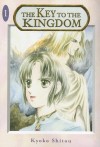 The Plot
The Plot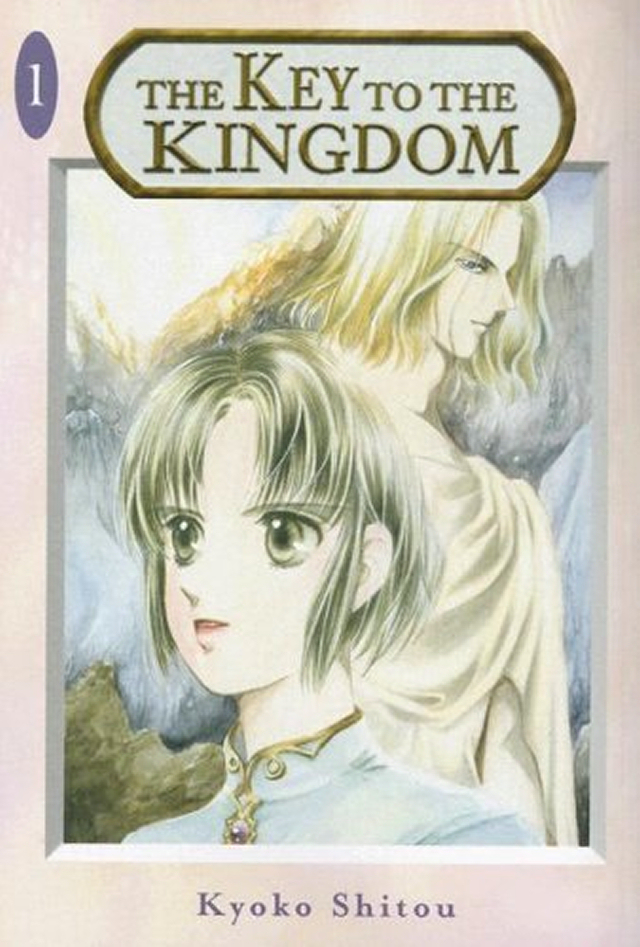

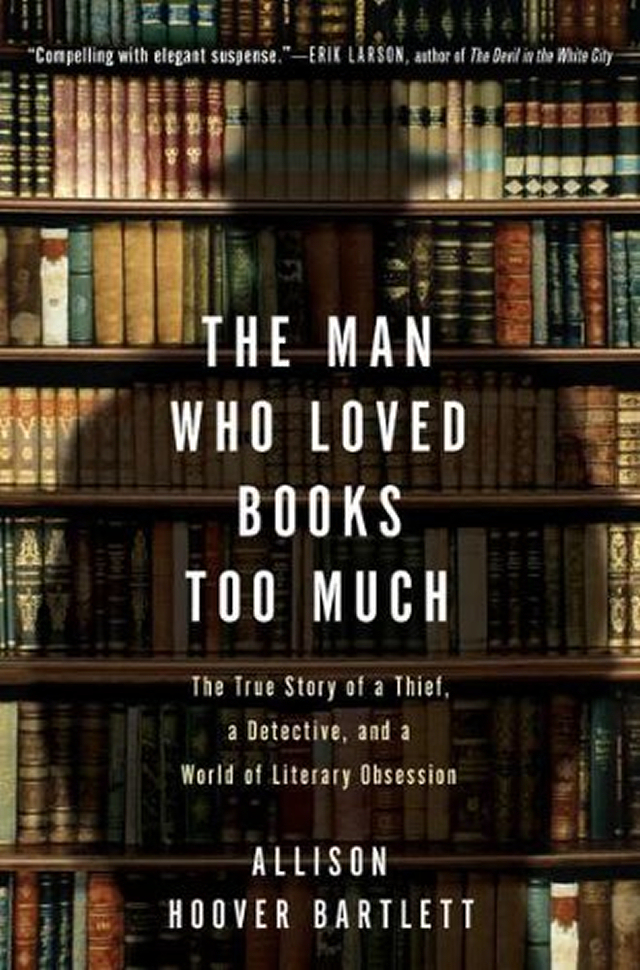
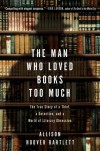 The Plot
The Plot


